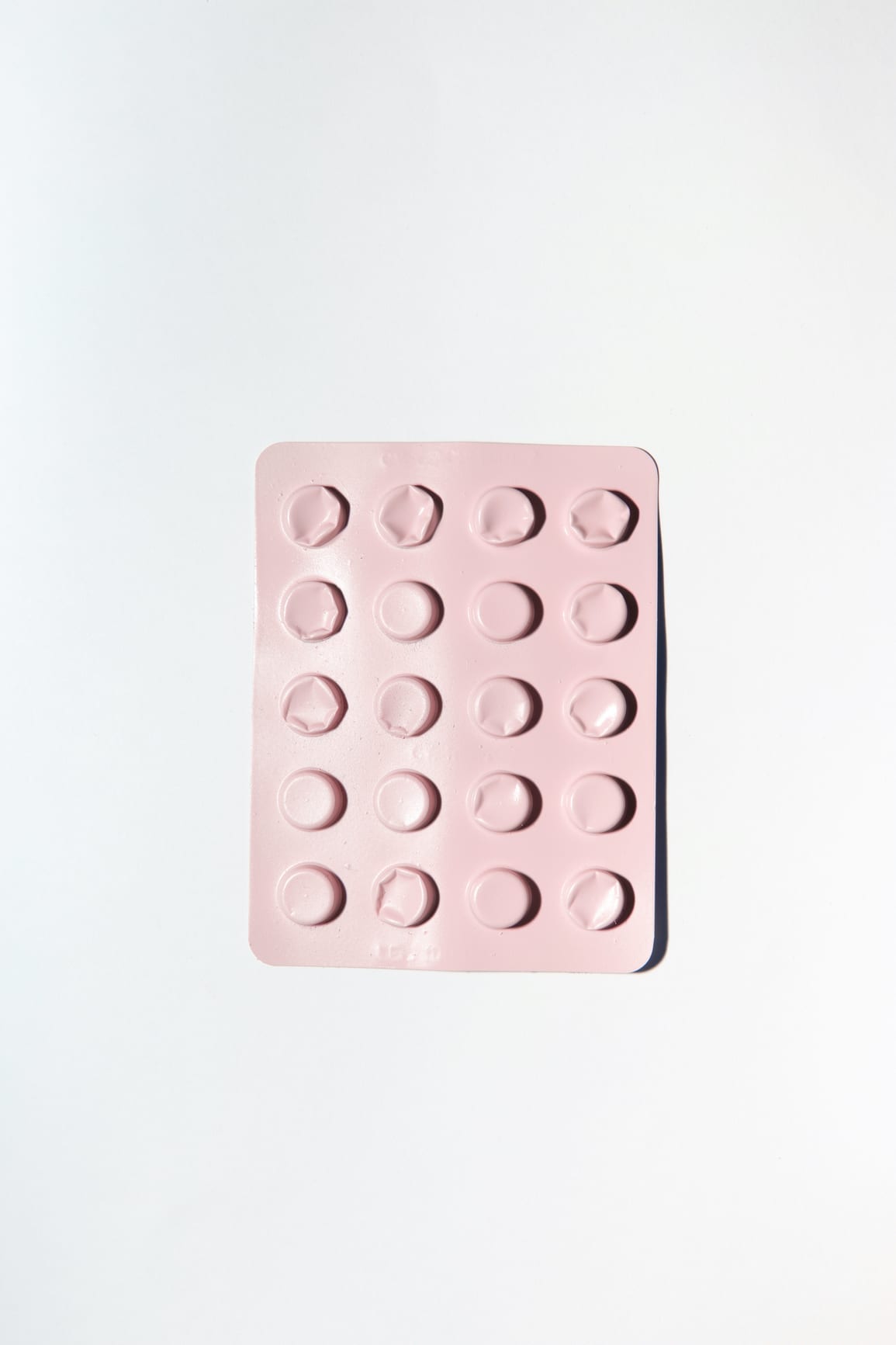The Pill – she gets a bad rap and to be honest, for good reason. For some, the contraceptive pill is purely a protective mechanism to avoid pregnancy before we’re ready to give the gift of life. Though for a lot of us, it was programmed into our young pubescent minds that men ‘don’t like the feel of a condom’ therefore they don’t want to wear one (the same goes for women too). So, our alternative? The pill. Turns out she’s mystical, you’re granted with a smoother complexion, the ability to skip your period months at a time AND your boobs grow a whole cup size! What’s not to love?
The cons outweigh the pros.
Unfortunately, a lot of us have been or still are, under the pills spell. Although the above may seem enticing, it is impacting your reproductive system beyond measure. The contraceptive pill switches off your natural, regular working hormones and provides you with faux hormones. The pill artificially induces a cycle, usually consisting of 28 days, providing you with a pill bleed that is not your actual period and barring natural ovulation.
The goss on sex hormones.
In a natural state, ovulation is how women make their hormones. Progesterone is produced after ovulation, the second part of the cycle; this is usually after day 14, as well as estradiol, both equally important for general health. Estradiol is the strongest and greatest source of estrogen. There are three major endogenous estrogens in a female: estrone, estradiol, and estriol.
Estrogen is the MVP of female sex hormones and is synthesized mainly by the ovaries, it help regulates your menstrual cycle and female physical features, including those blessed breasts of yours; however, estrogen is also needed for brain health, your heart, skin and bone health.
Progesterone is a precursor to estrogen and as mentioned earlier, it is produced post ovulation and secreted by the corpus luteum, a temporary endocrine gland. Progesterone prepares the uterus for a possible pregnancy. It triggers the lining to thicken with the hope of accepting a fertilized egg or adversely, it will reject the egg. If the woman in question does not become pregnant, the corpus luteum will break down the progesterone, which in turn sparks menstruation.
To confirm, all of the above does not occur when you are under the pill’s spell. The pill depletes your body of essential nutrients i.e. vitamin B6, folate, zinc, selenium, and magnesium, which are needed for healthy hormone production. A deficiency in these nutrients prompts low energy levels, sleep disturbances, mood imbalances, damaged hair, skin, and nails, not to mention your sex drive. Need we say more?
During our pubescent years, no one is thinking about a baby, we’re all trying to avoid it like the plague but let’s fast forward to adulthood when we decide to come off the pill and we’re left with adult acne, severe mood swings, our hormones are just running amuck and there is no sign of a period? What in the fuck is going on? A lot of women decide to discontinue the pill and decide that they want a baby pronto. For some, this may be possible but for others, it can seem like an uphill battle. Your hormones need time to adjust and regain their strength in order to return to their natural state.
How to transition off the pill and regain a normal cycle.
Coming off the pill may seem daunting at first but with some TLC and nutritional advice, your hormones have the ability to start working at their optimum again.
Nutrition and Supplementation
As mentioned previously, your body has been depleted of valuable nutrients, magnesium, selenium, zinc, folate, and vitamin B6. It is important to be replenishing these stores in order to help offset nutrient depletion and deficiency.
Increase your healthy fat intake. Fats are phat, these puppies often get a bad rap but they are a macronutrient and need to be embraced. They support healthy hormone production, especially estrogen. Include both omega 3 and 6 rich foods into your diet such as nuts and seeds; particularly flaxseeds, sesame seeds, hemp seeds, and walnuts; fatty fish i.e. salmon and avocado. A lot of babes are fearful of olive oil and butter but we strongly suggest reintroducing these two into your diet, they are rich in omega 6 and who wants to get through a meal without them? Not us.
“Nothing tastes as good as skinny feels”
Words Kate Moss lived by, but at what cost? Your menstrual cycle is reliant on a nutrient-dense diet. Depriving yourself of certain foods or undereating can lead to a loss of menses, this is also known as hypothalamic amenorrhea. The hypothalamus (the center of your brain) becomes neglectful and stops sending signals to your ovaries, ghosting them, for want of a better phrase, and as a result, switches off ovulation.
Your current body mass index (BMI) could be within a normal range, however, your body could be feeling the effects of an energy deficit. In other words, your exercising more than what you are ingesting. Thus, making sure the ratio between your energy output vs. energy input is in on point and in check.
Additional Resources
Our gorgeous friend Nikki, founder of MoonBox, is pretty much the hormone whisperer. She lives and breathes periods. MoonBox is a monthly subscription that provides products that will support you throughout the entire month, ensuring you are receiving the nutrients that are needed to optimize your reproductive health as well as nurturing your cycle.
*We believe education is powerful and so is your pussy. On that note and to reiterate, there is no judgment if you are on the pill, each female is on their own special reproductive journey. We are here to provide the facts and to ensure you are making informed choices.




